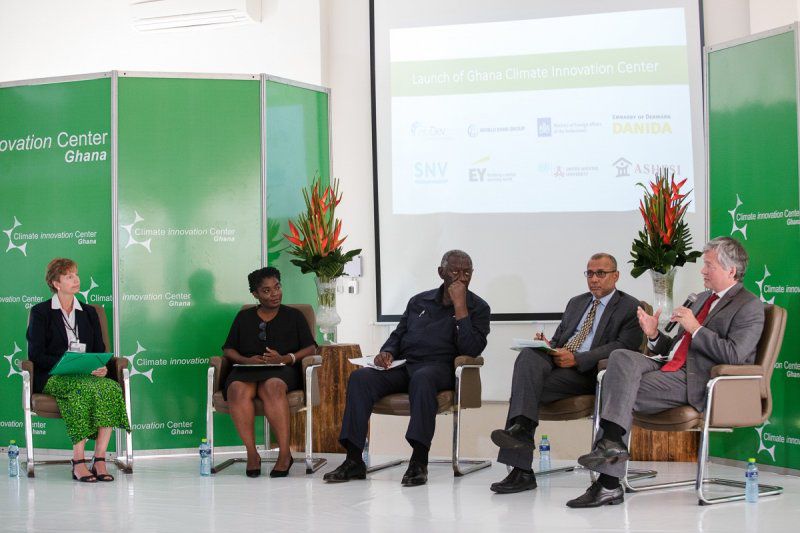Climate Innovation Center launched in Ghana
Published on by Water Network Research, Official research team of The Water Network in Academic
The World Bank Group, in partnership with Ashesi University, the governments of Denmark and the Netherlands, and Ghana’s Ministry of Environment, Science, Technology and Innovation (MESTI), have inaugurated the Ghana Climate Innovation Center (GCIC), a technology hub designed to help over 100 local clean technology businesses develop and commercialize innovative solutions to climate change.
First of its kind in the country, over the next 10 years the center will support Ghana’s National Climate Change Policy by contributing to the production of clean energy and the mitigation of up to 660,000 tons of CO2, the equivalent of the emissions of almost 140,000 cars for one year. Ultimately, the GCIC is expected to help more than 300,000 Ghanaians increase their resilience to climate change.

“The Ghana CIC solidifies the role of the private sector in helping Ghana manage the effects of climate change,” said Henry Kerali, World Bank Country Director for Ghana. “By enabling entrepreneurs and green innovators to test and scale new clean technologies, homegrown business solutions can help the country build climate resilience, while also contributing to job creation and economic development.”
Climate change could have a significant impact on Ghana’s economy. According to the World Bank report Economics of Adaptation to Climate Change, without a proper green growth strategy, Ghana’s agricultural GDP is projected to decline by 3 to 8% by the middle of the century. Coastal erosion from rising sea levels could result in significant loss of land and forced migration, while extreme weather events could further strain the country’s infrastructure.
To reduce the long-term costs of climate change and create opportunities for sustainable growth, the GCIC will provide local companies with the knowledge and resources they need to prototype, develop, and market innovative clean technologies in sectors like climate-smart agriculture, waste water treatment, and off-grid renewable energy. The services offered by the center will include seed financing, policy interventions, and market connections, as well as technical and business training.
Supported by the governments of Denmark and the Netherlands, the center will be managed by a consortium led by the Ashesi University College with Ernst & Young, SNV Netherlands Development Organization, and the United Nations University Institute for Natural Resources in Africa.
The GCIC is part of the World Bank’s Climate Technology Program and its global network of Climate Innovation Centers. Other centers have been established in the Caribbean, Ethiopia, Kenya, Morocco, South Africa, and Vietnam.
Source: Starr FM Online
Media
Taxonomy
- Climate Change
- Climate Change Adaptation
- Climate Change Resilience
- Climate Protection
- Climate Change & Sustainability Services